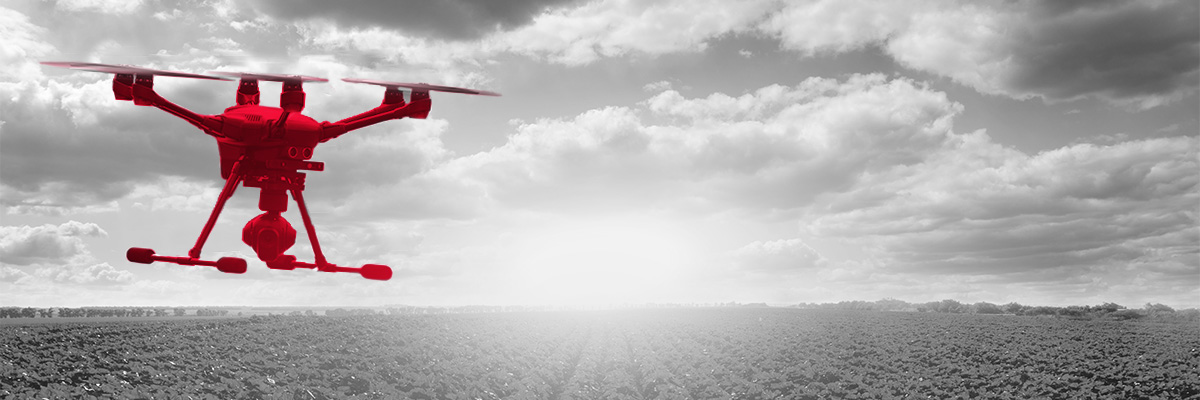Balancing sustainability and efficiency in the agri-food industry

A recent joint statement by the UK’s farming unions can be applied to agri-food businesses throughout the world. They said: “Our industry supplies food, stores carbon and generates renewable energy, but farming is also on the frontline of climate change impacts, being particularly vulnerable to extreme weather events.” Indeed, globally farmers own or host a significant proportion of the world’s solar and wind power generation, as well as anaerobic digestion capacity,
However, the global food system also contributes to global warming and is the number one source of methane and biodiversity loss. Balancing zero carbon commitments and the need to feed the world is a challenge faced by the entire industry. Clean energy transition is a key part of this.
What can our underwriters tell us about clean energy transitions in the agri-food industry?
At the Atradius Clean Energy Transition: A New Way Forward for Global Trade? event, Dimitri Pelckmans (Head of Risk Underwriting at Atradius Belgium & Luxembourg), noted the environmental risks posed by climate change and said: “Doing nothing is not an option”.
Our agri-food industry underwriters agreed but highlighted the many challenges currently facing the industry. In particular they noted the tension between the cost of transitioning to clean energy and producing affordable and accessible nutritious food for consumers.
Challenges: What are the most urgent challenges for the sector in the next three years?
1) Cost of clean energy transition
Our underwriting teams in China and France highlighted how costs can have a disproportionate effect on smaller producers, with many unable to raise the finance required to invest in clean energy or sustainable farming practices. Many markets noted how increased costs were being passed onto consumers, while our team in Denmark explained this can also be a challenge for food producers when consumers have less disposable income and reduce their spending.
2) Supply chain issues
Although the pandemic exacerbated issues with supply chains across sectors, logistics continues to be a challenge for agri-food. The war in Ukraine has caused problems for food producers reliant on grain and other foods grown in Ukraine, as well as for trade with agrochemicals businesses in Russia and those dependent on Russian gas. The carbon footprint generated by food imports and exports is also a concern for many.
3) Desire for change
Many of our underwriters, including in Spain, Australia and Poland noted the importance of consumer desire for the agri-food industry. In the West, there has been an explosion in the popularity of veganism, driven in large part by consumers seeking to lower their own carbon footprints. This is not a global trend, however. In China, there has been an increase in meat consumption. Issues with the availability of clean energy sources was also noted by underwriters in the majority of markets.
Opportunities: What are greatest opportunities for the sector in the next three years?
1) Investment in clean energy transition
Although the cost of clean energy transition was identified by the majority of our underwriters as a major challenge to the industry, they pointed out that investment in transition also presents an opportunity. Several of our industry experts noted that early investors were already realising benefits in both market share and competitiveness.
2) Innovation in agri-food processes
Innovations are providing opportunities for agri-food businesses, particularly as markets increasingly seek sustainable approaches to food production. The opportunities presented by greater efficiency in the use of resources were highlighted by our underwriters in Spain and the US. Belgium noted how approaches such as carbon sequestration in soil use (as can be seen in regenerative farming) are also presenting opportunities for the sector. This was echoed by our underwriters in the US and Spain who pointed to the opportunities realised by improved approaches to food sustainability and animal welfare.
3) Support of national and local government
The importance of the role of both central and local governments was highlighted by our underwriters in most regions. Local investment in renewable energy and tax breaks for agri-food industries can generate opportunities for sustainable growth. This was acknowledged by our market experts in Australia, China, Thailand and France.
Where next?
The agri-food landscape is changing. Farmers and food producers are being tasked with producing more food than ever to feed the world’s growing population, while also acting as custodians of the environment. Waste reduction and improved efficiency will be central to this and will present a growth opportunity in its own right. For example, Forbes estimates that spending on AI technologies and solutions in agriculture will grow from $1 billion in 2020 to $4 billion in 2026. However, farmers are also trying to cultivate land with the increased risks of drought, wild fires and floods. Lowering these risks will take a global effort to reduce greenhouse gas emissions and improve food security.
Important innovations in agri-food
Clean Energy
Farmers are increasingly producing their own clean energy (wind, solar and biomass) to power production and to sell to grid.Regenerative Agriculture
This focuses on improving soil health and biodiversity in order to improve carbon capture in soil, increase yields and build climate resilience.IoT and blockchain
Tracking the lifecycle of ingredients from farm to fork is helping to improve supply chain logistics and minimise food waste.
Documents connexes

2.32MB PDF
